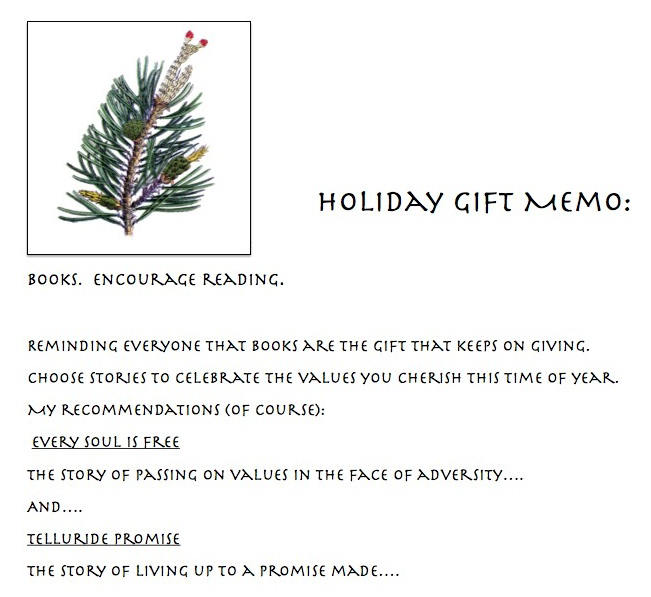My monthly blog with Western Fictioneers was published last Monday. Here it is:
Plowing:
Cheryl Pierson kindly gave me a list of seven publishers who are in Western Fictioneers. I wrote each of them, asking one question: “If a writer could do nothing else, what is the one thing you would tell a writer to do to sell his or her books?”
So far, five have written back. If the others come in later, I will post them next month.
Rebecca J. Vickery (Publishing by Rebecca J. Vickery, Victory Tales Press)
“Tough question and I’ll answer in general. For me and our authors at PbRJV, the one thing I advise is get on social media such as Facebook on a regular basis and be “sociable” while providing links to your website and books. It works.”
Dusty Richards
… was very generous and I have edited his response some…
“There is not any one answer on how to sell your books or some of us would have discovered it. … I have a professional web site. Anywhere I can I post that address for them to go look. I pay to have it up and it isn’t cheap but gets some results. I have a page on Amazon and I have to scream to get it kept up to date. People like a book you wrote they will go look for them at that site. I have books on the WWA button. …
I always write a letter to my readers in every book and give them my email. If you write me or email me you get a list of my books in return and a copy of our magazine www.saddlebagdispatches.com. … I try to get the book reviewed. I write blurbs for other authors to get my name out there. A western reader reads my blurb he may go look for my books. That is better than all the e business you can get into. I answer interviews like this to get my name out there. ….
 I have a column in a tri-state farm magazine–no get rich deal but it brings me readers. I have column in StoryTeller magazine. She shows my books on back cover in trade. I have book signings at events, library, shows. In the right place I make several sales and new fans.
I have a column in a tri-state farm magazine–no get rich deal but it brings me readers. I have column in StoryTeller magazine. She shows my books on back cover in trade. I have book signings at events, library, shows. In the right place I make several sales and new fans.
My first e-book/printed was with a small publisher. It had been out for five years. He gave it away one weekend . … We handed out 10,000 copies. Neither of us could not believe it. I had never gotten a 10 whatever for the IRS in income on it. In the next 18 months the total sales reached what a good New York book publisher paid out for a western. I plan to try that again on another project in the future.
I am disappointed in so many western books being published that no one edited and are a mess. They give us a bad name. ..”
James Reasoner (Rough Edges Press)
 Maybe the most important thing a writer can do today to sell books–whether they’re traditionally published, self-published, or come from a small press–is to maintain an active presence on social media. That can be overwhelming and too time-consuming, so it’s probably best to limit those activities to a few of the available platforms. I use my blog, Facebook, and Twitter for the most part, but a writer should do whatever feels comfortable. Just get your name and info about the books out there!
Maybe the most important thing a writer can do today to sell books–whether they’re traditionally published, self-published, or come from a small press–is to maintain an active presence on social media. That can be overwhelming and too time-consuming, so it’s probably best to limit those activities to a few of the available platforms. I use my blog, Facebook, and Twitter for the most part, but a writer should do whatever feels comfortable. Just get your name and info about the books out there!
Livia Reasoner (Livia J Washburn) (Prairie Rose Publications)
 Other than writing good books to start with (always the first step), I think the key to selling is to keep writing. Each book’s sales builds on the last, and when you have enough work out there it’s easier to run special sales and promotions with the earlier titles. So when you finish a book, it’s fine to pat yourself on the back–but then start thinking about the next one!
Other than writing good books to start with (always the first step), I think the key to selling is to keep writing. Each book’s sales builds on the last, and when you have enough work out there it’s easier to run special sales and promotions with the earlier titles. So when you finish a book, it’s fine to pat yourself on the back–but then start thinking about the next one!
Cheryl Pierson Prairie Rose Publications
 When you submit your work, be sure you have had it professionally edited AT LEAST for grammar, tense agreement, and punctuation. Most editors have at least three different price lists, dependent upon how much editing is required or asked for. This would be the cheapest for some–mid-level for others on their pricing. When you send your work to a publisher with poor grammar or punctuation, the publisher sees that you really don’t know what you’re doing–or care. If you don’t care about your own work, why should a publisher, or a reader?
When you submit your work, be sure you have had it professionally edited AT LEAST for grammar, tense agreement, and punctuation. Most editors have at least three different price lists, dependent upon how much editing is required or asked for. This would be the cheapest for some–mid-level for others on their pricing. When you send your work to a publisher with poor grammar or punctuation, the publisher sees that you really don’t know what you’re doing–or care. If you don’t care about your own work, why should a publisher, or a reader?
Sowing:
I had an exchange with Vonn McKee about my idea to use Westerns (and fiction in general) as a means to promote corporate goals (goods, values, and services.) She thinks it’s a tough sell and I share with you:
 “I have some experience in commercial advertising and my sense is that corporations trying to promote an image by drawing on artistic works or examples prefer to use something their audience will recognize. If the western fiction quoted was by a well-known author or a quote from, say, a character like John Wayne or a Clint Eastwood, that known image or emotion would be communicated onto the firm’s brand. …but getting a firm to use just any character or literary excerpt from an unknown author would seem a hard sell. …the exception would be if you happened to have a killer slogan you could lift from your work and pitch…”
“I have some experience in commercial advertising and my sense is that corporations trying to promote an image by drawing on artistic works or examples prefer to use something their audience will recognize. If the western fiction quoted was by a well-known author or a quote from, say, a character like John Wayne or a Clint Eastwood, that known image or emotion would be communicated onto the firm’s brand. …but getting a firm to use just any character or literary excerpt from an unknown author would seem a hard sell. …the exception would be if you happened to have a killer slogan you could lift from your work and pitch…”
One final note on Sowing. I told you about Writer’s Relief. Well, I subscribed. True to their word 29 my initial queries are out doing their work for me. Well, 25 are still at work, I have already received four “unfortunately, this one doesn’t sound like it’s right for us.” I was pleased with their efficiency and helpfulness in the first cycle, so I am risking a second. I’ll keep you posted.
E-mail Edward Massey with comments. Buy
Every Soul Is Free here,
or buy Telluride Promise here.











 My July is spent in Maine, well, commuting to Maine, because Anne spends July at Drakes Island. After a few years, I started to look forward to July in Maine. Now I do. So, this year, truncated and chopped up, turned out to be a frustrating disappointment, ended already on Sunday the 20th, and without once going in the water. So, you can imagine how happy I was to see Anne in the waves on Tuesday and now I share her with you
My July is spent in Maine, well, commuting to Maine, because Anne spends July at Drakes Island. After a few years, I started to look forward to July in Maine. Now I do. So, this year, truncated and chopped up, turned out to be a frustrating disappointment, ended already on Sunday the 20th, and without once going in the water. So, you can imagine how happy I was to see Anne in the waves on Tuesday and now I share her with you